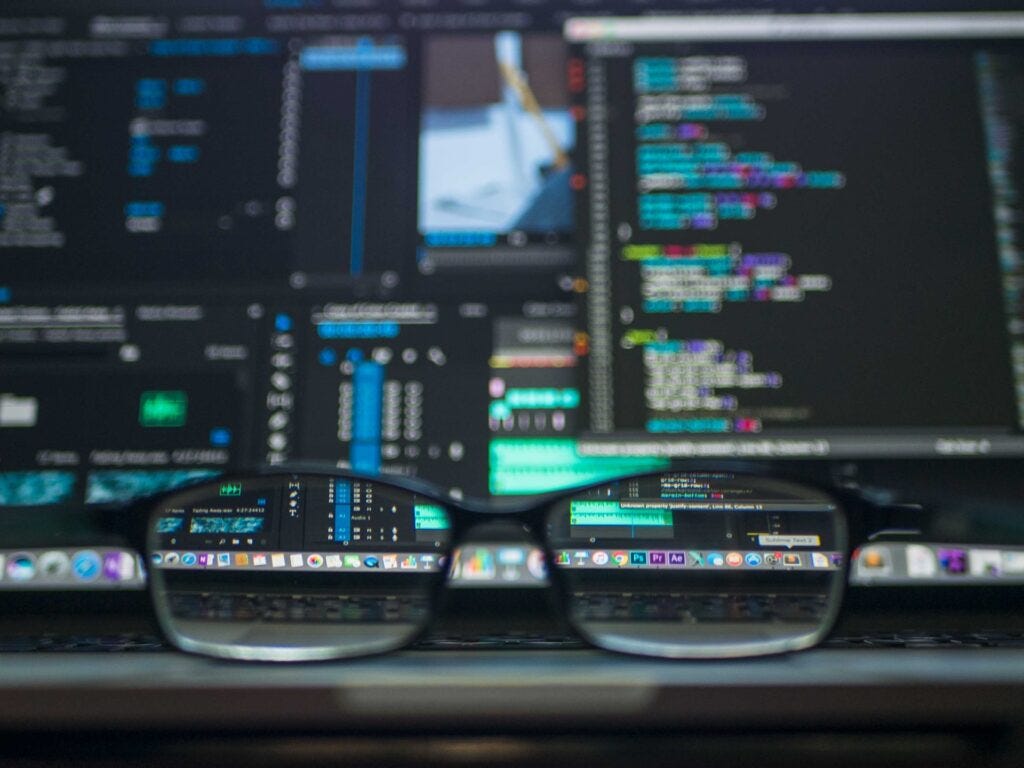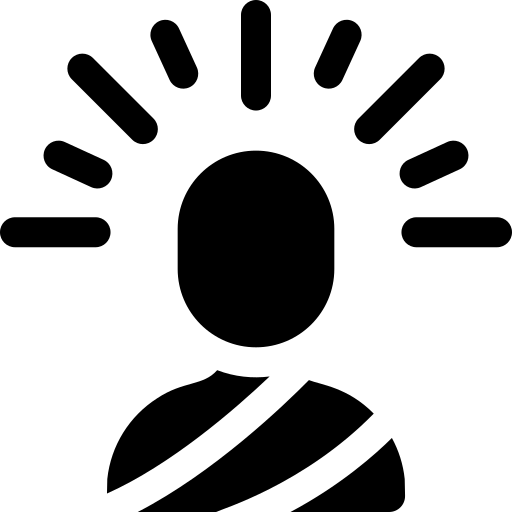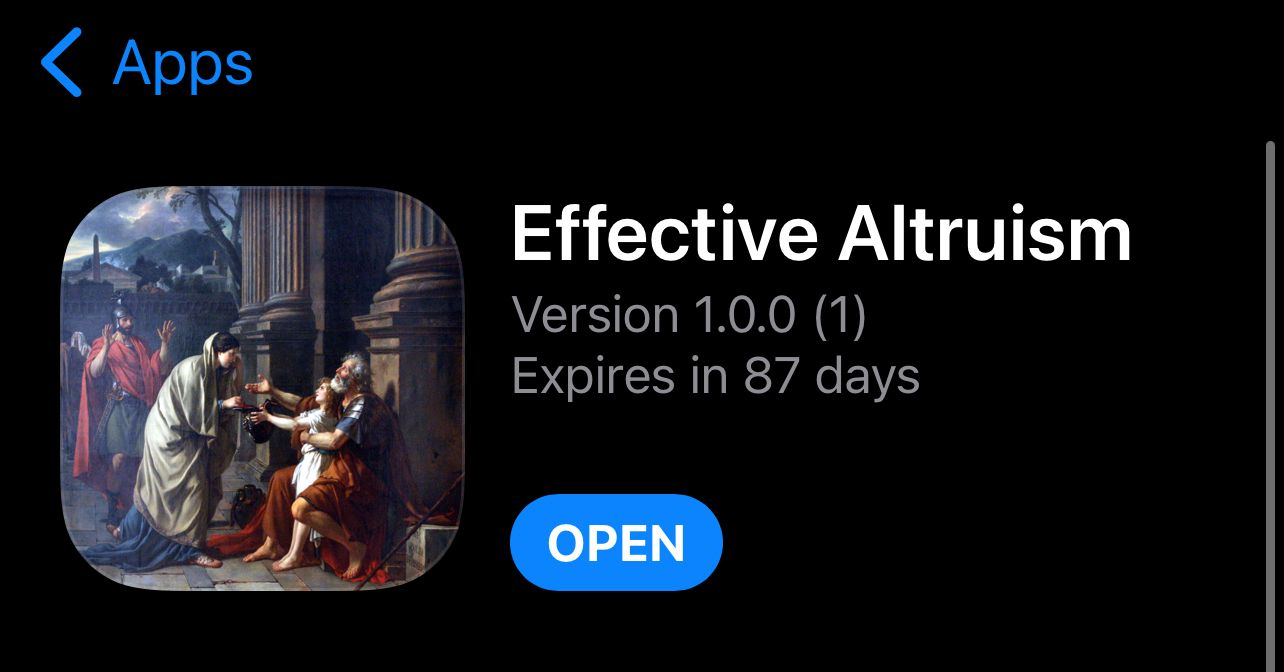The first 90% of this post is from Adam Elwood's "Resisting the invasion of our inner world" with mild adaptations throughout.
The last bit I linked to the new Effective Altruism tiktok style feed that I am building and working towards having an empowerment algorithm
--
In the middle of the last century, two visionaries warned of two contrasting dystopias. In 1984, George Orwell imagined a world under a state of constant surveillance, forced to submit to the powers that be. Instead, in Aldous Huxley's Brave New World, inane and meaningless pleasures distract humanity, leaving the world suffocated into subservience by comfort.
It's now alarmingly easy to find elements of both these visions. We live in the age of surveillance capitalism, where the most sophisticated information processing infrastructures ever conceived predict and manipulate our behavior. They do all this while rewarding us with a constant flow of distraction and entertainment. The negative consequences of this are becoming more and more evident, as the automatic personalization of our news feeds fractures consensus reality, and social media use is causing a crisis in teenage mental health.
We've reached a point where the manipulation of our thoughts is a major driving force of the modern economy. As we spend most of our waking hours extracting information through screens, we use powerful software that we don't pay for with money. Instead, we pay with our attention — the very resource that shapes our minds.
This all occurs with a constant distraction buzzing in our pockets, calling us to a drip feed of inane tidbits. It's so easy for the noise to sweep us away, keeping our thoughts occupied in the pursuit of nothing.
To work out why the empowering and uplifting ideals of the World Wide Web on our lives failed to come to fruition, and how we can reclaim that path, we need to look at both how our brains have evolved and why they are being hacked. Understanding this, we can begin to loosen the grip of the information economy on our minds, rediscover our free time and pursue the things we find truly meaningful.
The modern plight of continuous media consumption
As many of us now spend hours a day on our devices, our attention is increasingly scattered. We are simultaneously overwhelmed with actionable information while struggling to get anything done. The temptations of Twitter and Youtube make it so easy to fritter away days, never achieving real states of enjoyment or pursuing important projects.
It's easy to blame ourselves for falling into this. But, as Tristan Harris pointed out in The Social Dilemma, we're massively outgunned. On our side of the screen is an advanced monkey brain, juggling many commitments and trying to make difficult and nuanced decisions about how to spend its time. On the other side is an array of supercomputers, fed with trillions of data points and programmed by the world's best computer scientists to glue us to our screens and hack our reward system.
The perils of engagement-focused content
The abundance of excellent content and the ability to be motivated and stimulated by our devices was an ideal we lost. Before the internet, finding well written and rewarding articles were rare, maybe occurring once or twice a week in a favorite magazine or newspaper. Once we found a topic we enjoyed, we could specialize and dive into the rabbit hole of that topic.
As well as burning away our time, being exposed to too much tempting content has an insidious impact on the way we think. It leads us down a path of frantic consumption, where we gain shallow knowledge of trending topics, instead of a deep understanding of the world around us. This results in a feeling of intellectual disorientation — we are simultaneously inspired and unsatisfied, always hoping the next blog post or YouTube video will finally make sense of it all, but it never does.
We have replaced the newspaper with social platforms and rather than the most informative/empowering bits floating to the top, these are in fact suppressed. Why? Engagement algorithms are optimizing to keep you on the app as long as they can. If you found a video that motivated/moved you so much that you put your phone down, hugged your father, called a old friend, hit a workout, saved 20 kittens from a burning tree, and then advanced Ai alignment. All the algorithm would know is to not show that piece of content again.
Despite all this, there is clearly a huge positive potential to the internet. We are living in an era where almost any of humanity's collective knowledge can be immediately accessed from a small shiny rectangle in our pockets. We can communicate instantaneously via video with anyone in the world, and find communities of likeminded individuals to share interests in niche topics.
The internet has also allowed for the proliferation of new valuable forms of media — long-form podcasts, contain in-depth conversations with knowledgable people; it is possible to access a degree's worth of lectures on most topics from the world's top universities for free; YouTube contains a how-to video for every conceivable household task. Understanding how to take advantage of these upsides, while avoiding the downsides, is the key skill of our age. Godlike knowledge is at our disposal, we just need find a way to navigate the abundance of information without falling into a well of distraction. This starts by understanding how we are being exploited.

Our information processing biases
New information is incredibly valuable. It allows us to build better models of the world, so we can make decisions that are critical for our survival. Everything that differentiates us from other animals comes down to our ability to better disseminate complex and abstract information. This gives us a very strong bias to collect as much information as possible — our ancestors were the savvy hominids who could do this, while those less capable perished.
For most of human evolution, new information was a scarce resource. We obtained it by speaking with another member of our tribe, or exploring our local environment — both time-consuming activities with a low probability of success. As civilization developed, new information spread via travelers who explored beyond their local environment. But, it wasn't until the invention of the printing press that it could spread widely and consistently. This accelerated exponentially through the invention of radio, television and the internet. The change from information scarcity to abundance has happened so suddenly, we haven't developed the evolutionary intuitions to deal with it.
Along with our need to collect information, we also evolved the bias that all new information is relevant to us. This makes perfect sense when information is scarce and local — every new piece could make the difference between finding a rich new food source or starving next winter. Unfortunately, these biases don't serve us well in our modern informational ecosystem. We now have access to an infinite supply of irrelevant information, but our intuitions still tell us to consume as much of it as possible.
To see the mechanics of these intuitions more clearly, it is interesting to understand a bit about optimal information processing strategies and how we are driven by our natural reward system.
Exploration vs exploitation and information foraging
Information isn't valuable in itself, but because it allows us to change our behavior in a way to more intelligently fulfill our goals. There is an optimal tradeoff between exploration, to collect new information, and the exploitation of this new knowledge.
Effectively trading off these two factors is a well known challenge in computer science, particularly relevant to building intelligent systems that operate under the paradigm of reinforcement learning. For certain simple problems there are theoretically optimal strategies that allow for a perfect tradeoff, so as to minimize the opportunities lost by a system over time. These problems are framed as reward collection tasks, where different behavioral policies are tried until a policy that optimally collects the most rewards over time is chosen.
Algorithms for finding optimal policies typically work by keeping track of the expected reward for each policy — the probability of gaining a reward multiplied its value — along with its uncertainty. Each time an action must be taken, the policy that will yield the maximum reward in the most optimistic scenario is chosen. Each time a policy is tried new information is obtained, reducing the uncertainty on how well it behaves. Always behaving optimistically reduces the probability of getting stuck in a sub-optimal policy due to being too pessimistic about the alternatives.
The rewards available to each policy are typically initialized with high uncertainties, so lots of different policies are tried at the beginning. Over time though, as more information is collected and the uncertainties reduce, policies that don't perform well are discarded and a single optimal policy emerges.
Unsurprisingly, evolution has built a similar exploration-exploitation tradeoff strategy into our intuitive information gathering behavior. The model for this is known as information foraging, which draws analogies with the way animals forage for food, and is well illustrated in the way we consume information. When we are reading a magazine, for example, and have the option to change to another article, we intuitively decide to switch based on both how difficult it is to make the change, and how likely we think a new source will be more informative. The temptation to switch is much stronger when reading on the internet or when we have a phone in our pocket‚ as changing information sources is so easy, we are much more likely to explore new ones than exploiting the ones we are currently reading.
Under these new conditions, our natural intuitions that new information sources are rare and valuable end up harming us. We are not well adapted to the abundance of easily accessible information. It is easy to see how this leads to endless scrolling through social media, or the difficulty of finding time to read a book on a free afternoon.
Photo by Annie Spratt on Unsplash

Our goals and the neurotransmitters that drive our behavior
Having established that our intuitions don't always serve us well, we can get even more insight into our predicament by looking into our natural reward system, which was also unprepared by our ancestral environment to deal with smartphones and social media.
Dopamine and serotonin are two neurotransmitters that play a key role in regulating our behavior. Dopamine rewards us when we go out into the world and achieve things. It keeps us moving forward, drives us to explore and makes us feel good when we reach our goals. Serotonin, on the other hand, rewards us when we are in a fulfilling situation that we don't need to change, such as relaxing after exercise or hanging out with loved ones. If dopamine drives exploration, serotonin drives exploitation.
To live a satisfying and healthy life, it is necessary to balance both aspects of our reward system. We need to make use of the dopamine system to motivate ourselves to achieve things and constantly improve our knowledge of the world. But, without taking time out to enjoy the simple sensual pleasures of existing, we will burn out and won't be able to find the willpower to get anything done.
By its very nature, the attention economy tips our behavior towards the instant gratification provided by our dopamine system — the serotonin inducing warmth of sunlight or direct human contact isn't distributable through a screen. Even if it was, it would be much more valuable to keep us moving around, exposed to more advertisements.
To hack our dopamine system, the modern media environment targets our immediate fears and wants, discouraging us from focusing on our longterm goals. A like isn't a meaningful social interaction, but is felt superficially as if it is. Internet pornography offers an even more powerful stimulus, but only provides shallow sexual gratification. We are therefore nudged towards spending our time on things that our intuitions tell us will help us to fulfill our evolutionary goals — the building of meaningful relationships or successful reproduction. But, over the long term these things aren't achieved, so we don't end up in a satisfied, serotonin inducing state. This leaves us frazzled and unsatisfied, without an intuitive answer for why we feel this way.
Corporate alignment problems
So far we've seen how we are being hacked, but this leaves us to explain why we are being hacked. What is the mechanism that is driving us towards distraction and misery?
In most cases, the tech giants are setting out to build good products that people want to use. The owners and employees of these companies aren't driven by malign motivations, but feel like they are making a positive contribution to society. Despite these noble intentions, big corporations are machines that optimize for profit, even when it does not strictly align with the goals of consumers. Not only are corporations bound do this by law, but having such a clear and measurable objective is a big advantage to an organization. It provides an unambiguous measure of progress, making it easier for everyone to cooperate. Companies can break down all key business goals into measurable objectives and assign them to employees for monitoring and optimization. No one needs to concern themselves with messy holistic thinking, everyone knows what they need to do and can focus on doing it as efficiently as possible.
This optimization process is supercharged in a tech company, which has the infrastructure and knowhow to collect vast quantities of data relating to its objectives. This, along with unambiguous definitions of their goals, can then be fed into machine learning algorithms.
This is an incredibly powerful way of working, and very efficient for short term profit maximization. But, it biases companies to pursue easily measurable aims, leaving negative externalities completely ignored. Rather than developing strategies that take the wider social context into account, employees gets their heads down and optimizes their narrow objectives. This leads to alignment problems — scenarios in which an overzealous focus on an objective can cause unwanted side effects.

These issues aren't just theoretical, but are playing a major role in exacerbating all the problems discussed so far. The YouTube recommender algorithm, for example, has been shown to contribute to the dissemination of conspiracy theories and the radicalization of its users. Given the objective to keep viewers watching YouTube for as long as possible, the algorithm discovered that they were more likely to do so when fed with misinformation and emotive content. As no concept of societal responsibility was built in to the optimization, it did what it was told to do and gave the people the damaging content that kept them most engaged.
This isn't just limited to YouTube, the spread of misinformation occur on all social media platforms that optimizes for engagement with the platform. A recent study demonstrated that fake news spreads up to six times faster than real news on Twitter. Facebook's Groups have also been implicated in creating echo chambers for extremist views.
All platforms that have an incentive to keep users on them, so as to serve them with more advertisements, suffer from an alignment to the greater good of the user, and thus the world. The algorithm doesn't care if we fritter our life away swiping through Instagram, it actively encourages it. Rather than gyms for our brain we have strip clubs, rather than whole-foods we have candy stores. The only way to stop this kind of thing happening is to build it into the design of the algorithm. When this goes against the business model of big tech, there is always going to be an uncomfortable tension between their profit motive and the the wellbeing of their users.
All of this comes from tech companies deploying vampiric algorithms at scale. Imagine what could happen if our algorithms became exponentially more powerful, as is forecast to happen. This is what makes alignment problems one of the major difficulties in building safe artificial intelligence.
Despite all of the above, we aren't doomed to the system we find ourselves in now. We are waking up to what is going on, which is enough to start to push for a future of transparent algorithms that have holistic objective functions. In the meantime, however, we have to find a solution for ourselves.
Taking back our minds
Given all of this, the difficulties of modern media consumption can be roughly broken down into three different issues:
- The abundance of super-salient content that exploits our evolved reward pathways
- The ease of access to an unending source of novel information on devices that encourages task switching
- Misalignment of the goals of the content distributors and the content consumers
To free our minds, we should ultimately address all three of these points. But, we have to start by viscerally understanding that the way things are won't make us happy. When we can feel this, we can start to see how our information processing biases are being exploited to keep us glued to our devices. When we really get that the information we're receiving isn't relevant or scarce, we will naturally want to reduce our consumption.
Embodying this realization isn't so easy, though. As habitual phone use is driven by a hacked dopamine system, change requires time and effort. Luckily, we can control our reward system — by choosing how we frame the situations we find ourselves in, we can change how our reward system responds to them. Dopamine is not only released by basal urges, but also when we progress towards an abstract goal. If we are intelligent about what we aim for, we can get our dopamine from a wholesome source. This then comes with the added bonus of a serotonin reward while you relax and recover, proud of what you've achieved. This turns the task of taking back our minds away from a project of asceticism and avoidance, into a project of discovering meaningful ways to spend our time.
Thankfully, there are no end of life-enriching approaches to this. It never fails to spend time cultivating meaningful social interactions or helping others. Along with this, you can find projects that interest you and go deeply into them — read books, create music, grow a garden, watch birds, participate in sport — anything that feels intrinsically important and engaging. Just bear in mind that activities that require creative participation are usually preferable to passive consumption, as they require a deep involvement and are more likely to induce flow states. Writing about a topic, for example, results in a much deeper understanding of it than just reading about it.
Having found meaningful projects with which to occupy your free time, you are now in a position to take conscious control of your exploration and exploitation. Rather than being buffeted around by incoming notifications and your news feed, you can direct your exploration towards your interests. This turns the internet from a source of distraction into a treasure trove of meaningful information.
Photo by John Moeses Bauan on Unsplash

Some practical tips
Although this may sound like a great idea, actually getting away from technology to implement some of the above ideas can be more challenging than it seems. The first thing to do is to make some space between you and your devices, this gives you an opportunity to understand what you actually want to do.
An extreme but effective approach is to carry out a Digital Detox, as laid out by Cal Newport. Simply make a promise to avoid all but the most necessary use of technology for a month, and use this time to rediscover what you really enjoy doing. After this period, reflect on the technology that brings value and meaning to your life and reintroduce it slowly, cutting away the extraneous baggage.
Less ambitiously, start taking long walks in nature without any input and the intention to think about what you want to do. You’ll be amazed what your brain can throw up if you give it chance to breathe, away from the constant barrage of new information. Try to avoid the temptation to fill all your spare moments with input from a phone. Let yourself be bored on a train journey, or put on some music and let your mind wander instead of watching Netflix late at night. With the right intention, ideas of how you really want to spend your time will start to emerge. Taking up a meditation practice can really augment this process, giving you powerful tools to change your perspective and notice when your attention is being directed in unhelpful ways.
It’s also worth being selective of the media formats that you consume. Information sources that require a longer commitment, such as books or long-form podcasts, help to combat the confusion of disparate ideas from endless article hopping. Even YouTube can be valuable, just spend time watching a series of lectures rather than jumping around the recommendations feed.
Finally, bear in mind that media consumption is not substrate independent — the device you use has a tangible effect on your experience of the content. As we’ve seen, the easier it is to switch sources on the device you are on, the more easily you’ll be distracted. Computers tend to be better than phones, but nothing compares to a book or a pen and paper.
The ultra-strength gravitational pull smartphones make it worth employing extra tactics to escape their orbit. Most come with tools for setting timers on the usage of distracting apps and managing notifications. When focusing on something you want to do, keeping your phone out of reach. It can be especially valuable to not look at any of your devices at all in the morning until you have finished some creative work or spent some time reading a book.
Escaping the creeping dystopia
Millions of years of evolution could never have anticipated the frantic information-rich world we now live in. But, instead of waltzing into a hyper-informed scientific utopia, we're sleep-walking into a dystopia, driven by misaligned incentives and short-term thinking. But, this needn't be the case, and we have already begun the shift of recognizing what's going on allowing us to put our defence up. We don't expose our computer to the internet without a firewall, we shouldn't do so with our minds either.
There is a silver lining to all this though. This is not the first time humanity has had widespread rampant addiction that was extremely bad for our health, we are continually updating our cultural operating system. As an example, cigarettes used to be a welcomed staple of culture. They did not become any less addicting, in fact over time companies got better at making them MORE ADDICTING, but they became low status. This negative status point eventually provided a positive feedback loop to their mass decline in society and physical establishments aided in updating culture by banning their use indoors.
This societal status update is more urgent than ever before. As our communal stories are fragmenting, consensus reality is breaking down, making large-scale communication on big problems more and more difficult. We can't afford this when the world is facing mounting challenges. We have to make the effort to enact our own values, and not let our limbic system get hacked through a screen. It's time for attentive resistance. I believe this conscious consumption movement is already underway. Evidence of this includes BeReal becoming number one on the app store, pushing a more authentic/connection focused social experience as well as the documentary “The Social Dilemma” airing on Netflix and being a big hit.
Finding our way to navigate the sea of distractions can be both beautiful and meaningful. We can learn to thrive in the abundance and achieve so much more than would ever have been possible without the miracle of the internet. We can seize the opportunity to put emerging AI technologies in the service of humanity, instead of extraction of our lifeforce.
Ultimately, our life is defined by what we pay attention to. There is nothing more important than how we fill our conscious experience. As we can't know and do everything, we have to make choices about how we spend our time and energy with wise discernment. As it looks like we are living in a pivotal moment, now is the time to take back control of our minds. We can then take the tools narrowing us into a dystopia and use them to expand our knowledge and awareness. Properly exploited, there's nothing to stop steering the interconnection of our humanity away from toxicity and towards healthy mindsets that help us attempt to expand into a brilliant utopia.
Photo by Sanketh Hiremath on Unsplash

What if we flipped the switch on content consumption? What if we made machine learning algorithms for that optimize not for extraction, but for empowerment?
What if everyday you checked a feed of videos optimized by people around the world for your flourishing. What if we used this power of media and algorithms to give energy, perspective, and gratitude to power us through our day.
How do we get there?
The like metric is better than factoring engagement time when thinking about empowerment over extraction but it does not get us all the way there. We want to track the videos that are the most effective that makes a user LEAVE the app feeling great, but using the exit metric is imperfect because many people may exit for any random reason, say they get a phone call etc.
The solution, the “empowered exit” metric. This button provides a distinct way to exit the app, one that allows us to get the exact metric we are looking for.

This is not a far-fetched idea, this is what I have been working on with a team I’m funding (and about to run out of funding so would love advice or pointers on moving that forward)
I made an Effective Altruism-specific app that's going on the IOS and Google Play store, with permission (who gives permission?) would love to use the real EA logo here!
Download The Testflight App here: https://testflight.apple.com/join/1wghdGma

This version does not have the empowered exit button because we have not yet built the ML backend for that (this is a part of a bigger model and concept called Socialverse) if you are a developer with an ML backend I would love to have your help, until I get any funding I cannot offer great compensation but I can definitely offer equity if theres interest in a long term role. Anyone interested can DM me or use the Typeform here https://www.socialverseapp.com/join-us
I am super excited to expand upon this and will be posting progress and more surrounding thoughts in the future!
Thanks for the support.

<3